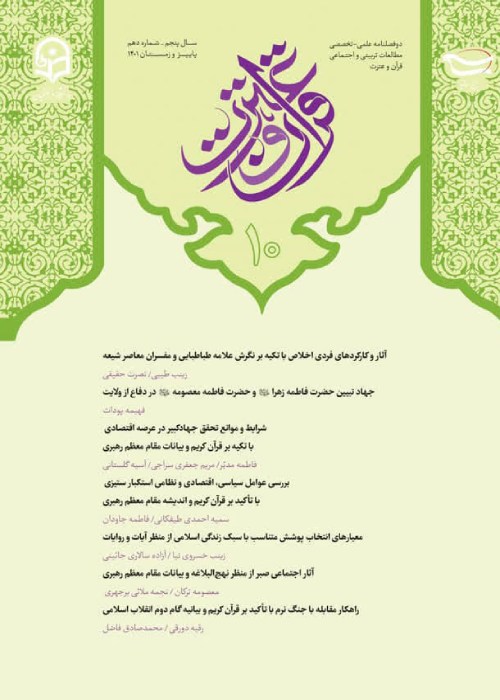Self-Knowledge and Self-Improvement from Imam Ali’s Viewpoint in Nahj al-Balagha
Self-improvement, as the great Jihad, is one of the most important duties that everybody should do it as possible as he/she can in order to enhance his/her esteem, family’s esteem, and society’s esteem. Self-improvement can be done at physical, spiritual, intellectual, and moral levels, and those related to faith and beliefs. To reach the stage of self-improvement, he/she should be aware of his/her existential dimensions that it results in the knowledge of Allah. Undoubtedly, reaching a favorable and ideal situation is impossible without the knowledge of human, as an educational subject. From Imam Ali’s viewpoint in Nahj al-Balagha, there are some basic principles of self-improvement including self-knowledge, Tazkieh, Tahzib, selfassessment, Taghva, and doing religious orders and knowledge, and there are some ways of self-improvement such as morality; reason and thinking; worship; repentance; remembrance of death; avoidance of loving the world, worshiping lust, desires and ambitions, pride and arrogance. According to Imam Ali, self-improvement is not only an individual issue, but a social issue. It does not mean that whenever a person wants to improve or modify his/herself, he/she should avoid society and be isolated. In this article, the content of Imam Ali’s sayings about the importance of self-knowledge and self-improvement is analyzed as well as its hierarchy and outcome in Nahj al-Balagha by using a library research method.
- حق عضویت دریافتی صرف حمایت از نشریات عضو و نگهداری، تکمیل و توسعه مگیران میشود.
- پرداخت حق اشتراک و دانلود مقالات اجازه بازنشر آن در سایر رسانههای چاپی و دیجیتال را به کاربر نمیدهد.



